Flowers Bank Fourteen: The Votes That Saved Belize
We often hear about the Tenth of September as a day of parades and patriotism, but behind the celebrations lies a powerful story of courage and conviction. Long before Belize was a nation, fourteen men, known today as the Flowers Bank Fourteen, stood at a crossroads. Twelve were free Black men, two were white settlers. And when asked whether to flee or fight off Spanish invaders threatening the settlement, they chose to stand their ground. That decision, made in 1797, helped shape the course of our history. Tonight, Paul Lopez takes us to Flowers Bank Village for a closer look at the legacy of these unsung heroes in this edition of Belize on Reel.
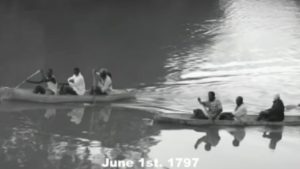
Paul Lopez, Reporting
September is here, and with it, the spirit of celebration and national pride. Every year, Belizeans mark the historic Battle of Saint George’s Caye, a naval clash between British settlers and Spanish forces that took place on September tenth, 1798. But behind the fanfare and flags is a lesser-known story of courage that helped shape our nation. It all started with fourteen men, twelve free Black men and two white settlers, who made a bold decision in Flowers Bank. Known today as the Flowers Bank Fourteen, they chose to stay and fight rather than flee, standing up to the threat of Spanish invasion. Their bravery laid the foundation for the victory we celebrate today.
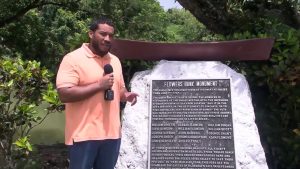
Paul Lopez
Paul Lopez, Reporting
“William Crofts, David Dawson, Caesar Flowers, George Rayborn, these are not just ordinary names. These men are considered heroes and their legacy lives on.”
A monument was erected in their honor in Flowers Bank Village, a community we visited and spoke with an ancestor of the Flowers and Rhaburn families about the decision they made that would change the course of the nation’s history. He is seventy-five-year-old Reuben Rhaburn.
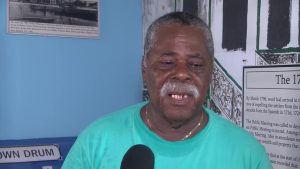
Reuben Rhaburn
Reuben Rhaburn, Resident, Flowers Bank Village
“Those people they wanted to keep their freedom, so they thought it was very important to really fight for the benefit of this country and so I believe that is one of the reason why they decided to attend that meeting. And so, that is how it came about. That is my opinion, but they wanted to save we. So yes they said it is important for us to attend the meeting.”
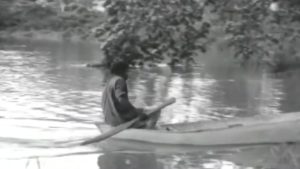
In 1797, the Spanish were planning to invade then British Honduras to take hold of the land. Their intent was to expel the British Settlers. So, a public meeting was called to decide on whether the settlers should abandon the settlement or stay and fight.
Reuben Rhaburn
“They were free slaves, so they decided to attend the meeting so they went to Belize. In those days as far as I can tell, when those people who lived along the river banks, something important come up they would call each other and they would have a discussion and so that is what really happened. When they heard about the meeting, they got together, you had this man Adam Flowers, he was a leader in Flowers Bank, so he was interested and contact all these people on the monument, the fourteen people.”
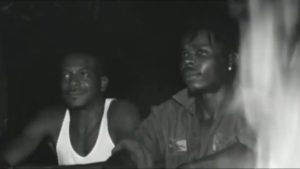
All but two of the men were free Black settlers. They paddled down the Belize River in canoes, heading to what is now Belize City. They were there to cast a vote that would decide the fate of the settlement. Out of one hundred and sixteen people present, fifty-one voted to evacuate. But sixty-five chose to stay and fight, and that margin of victory? Exactly fourteen votes. The Flowers Bank Fourteen tipped the scale. Their decision led to a defining moment, the British successfully repelled the Spanish invasion. And today, their courage lives on in the story behind the Tenth of September.
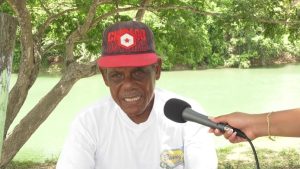
Lincoln Flowers
Lincoln Flowers, Resident, Flowers Bank (File: June 3rd, 2024)
“I know that in the time they went to Belize and they did their thing and that is why Belize is still here amongst us.”
Reuben Rhaburn
“Because these people were slaves, but free slaves, so the majority were people with a mixture of black people, what we call creole, so other people who have different skin color and thing, they did not want them to have them to have this what you would call. They did not want them to seem as if they were heroes, so they wanted to downplay it.”
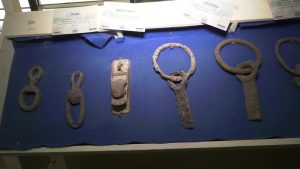 Flowers Bank isn’t letting history fade. With help from the National Institute of Culture and History, villagers turned their community center into a museum honoring the Flowers Bank Fourteen. Outside, a monument lists all fourteen names, and fourteen Belizean flags fly proudly in their memory. Chairlady Kisha Flowers, one of their descendants, says it’s all about keeping their legacy alive for future generations.
Flowers Bank isn’t letting history fade. With help from the National Institute of Culture and History, villagers turned their community center into a museum honoring the Flowers Bank Fourteen. Outside, a monument lists all fourteen names, and fourteen Belizean flags fly proudly in their memory. Chairlady Kisha Flowers, one of their descendants, says it’s all about keeping their legacy alive for future generations.
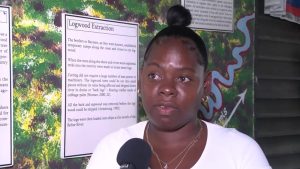
Kisha Flowers
Kisha Flowers, Chairlady, Flowers Bank Fourteen
“I am proud as ever knowing that I am a Flowers, I live in Flowers Bank and knowing that my ancestors helped to make a change. So of course I am proud. We try keep it as simple as possible, we try to teach our kids as much as possible so that they can pass it on to their kids. Flowers Bank has always been a peaceful community. We try to keep our culture alive.”
The community hold an annual celebration in honor of the Flowers Bank Fourteen. Reporting for News Five, I am Paul Lopez.





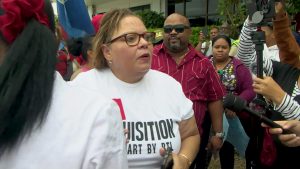
Facebook Comments